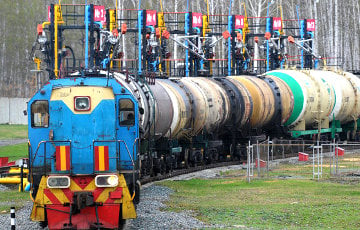Can Expensive Oil Ruin the Economy of Belarus?
- 23.01.2020, 15:28
- 2,793

A ton of Norwegian oil is $130 more expensive than a ton of Russian oil.
The Belarusian Oil Company (BOC) bought a batch of Norwegian oil from Johan Sverdrup and delivered it to the Lithuanian port of Klaipeda. From there, the oil will be delivered by rail to the Navapolatsk refinery. Against this background, Lukashenka stated that in the future Belarus would buy only 30-40% of the necessary oil from Russia, reports Euroradio.
Will oil from Norway be able to become an alternative to Russian supplies? Will gasoline at Belarusian gas stations cost as much as at Norwegian ones, if oil turns out to be much more expensive? For reference: AI-98 costs €1.8 there. We have €0.85.
How much did Belarus pay for the first 80 thousand tons of Norwegian oil?
We do not know, this price has to be calculated. Today, a barrel of oil, depending on the brand, is traded at $64-65. The market price of a ton is a little over $470. According to Telegram-channel zaprauka.by, Belarus will pay $9 per ton for transhipment at the port of Klaipeda, $40 per ton for delivery to Naftan. Plus $1/ton for quality and quantity control, plus $2/ton for discharge on railway overpass and pumping into refinery tanks. It is about $520 per ton of Norwegian oil.
According to Belneftekhim, the price of Russian oil for Belarus is 83% of the world price. It means that oil from Russia costs around $390 per ton. A ton of Norwegian oil is $130 more expensive. This is a very significant difference. Lithuania can transship about 3 million tons of "alternative" oil through its ports in a year. Belarus "loses" about $400 million at these ports. Well, sovereignty is not cheap!
Will Belarusian refineries remain profitable with such alternative oil?
"If the purchase price of alternative oil is market-based, its supplies to the Belarusian refineries have no economic sense. This has been repeatedly shown by experience: there have been attempts to supply Venezuelan and Azerbaijani oil. It lasted for a year. There were one-time supplies from Iran. This campaign turned to be failing as well," said the expert of zaprauka.by.
"The Russian Federation is the only country which sold oil to Belarus at a lower price," added the expert.
Vadzim Iasub, a senior analyst at Alpari, does not want to judge anyone else's calculations but agrees that alternative oil will be more expensive than the Russian one. According to the economist, cooperation with other suppliers will be a hard but useful experience for Belarus:
"The availability of more expensive, but alternative sources of oil supply contributes a lesser ability of Russia to exert pressure and take the position of a monopoly supplier of raw materials to Belarus.
What will happen to gasoline at filling stations?
According to experts, the rise in fuel prices is inevitable. And it is not only about relatively expensive alternative supplies.
"The historical truth of the price dynamics at Belarusian filling stations has a clear and established tendency - the cost of fuel is only growing. We ask you to ignore tactical "kopeck" price reductions, as they were eventually won back by the general rising trend. Therefore, we have to state that fuel prices at filling stations in Belarus will only rise soon," says the expert of the site zaprauka.by.
"How will they grow? Given the election year, [presidential elections will be held in 2020 in Belarus] it's unlikely that there will be any significant one-time growth. The tactics will be as follows: a one-time increase by one penny. But it may happen more often than last year. Up to every week," Iasub adds.
In 2019, car fuel prices rose 28 times. In 2018, it happened 27 times less.
Vadzim Iasub recalls that until 2017, Belarusian refineries could earn on the export of petroleum products and thus cover the losses they incurred in the domestic market due to selling fuel at a relatively low price. Last year, the opportunities to earn on export decreased significantly. In early January, its fuel supplies abroad were even stopped. They were resumed only on January 22.
Can expensive oil ruin the Belarusian economy?
If Belarus diversifies its supplies with oil at market prices, how will it affect the country's GDP? According to Director of the IPM Research Center Aliaksandr Chubryk, it's difficult to predict anything now. Belarus has no historical precedents for the diversification of oil supplies yet.
"This year the amount of purchased and refined Russian oil will have an impact on us. The first quarter [2020] will be a failure because of these supply cuts. GDP may even drop in the first month. Then everything depends on conditions and volumes we agree upon.
So far, the Belarusian oil refineries remain underloaded. According to IPM estimates, in 2020 every 10 percentage points of oil products production decline will reduce GDP growth by about 0.36 p.p.
According to preliminary estimates, GDP grew by only 1.2% in 2019. Failure to load the refineries at ⅓ will nullify this growth, and if the problems are more serious, will drive GDP down. Minsk still has no contract for Russian oil supplies for 2020.









